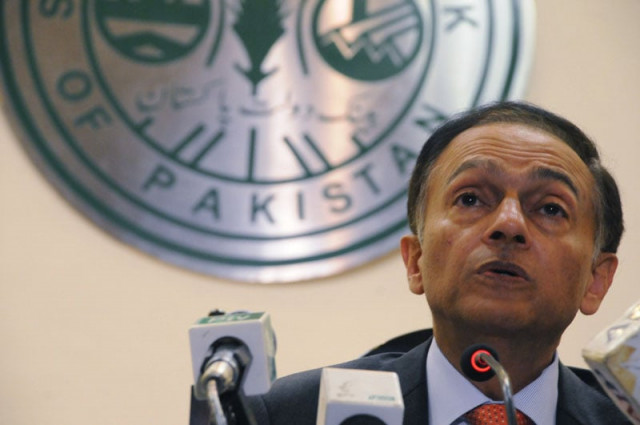SBP blames market forces for rupee depreciation, not IMF
Governor says currency to become stable as central bank shores up reserves.

Governor State Bank Says the central bank os expecting stability in the exchange rate as the first tranche of the $6.64 billion IMF loan was received by Pakistan, and it will be receiving the second one soon. PHOTO: MOHAMMAD NOMAN/EXPRESS
While addressing the seventh Shamrock conference on small and medium enterprises (SMEs), Anwar said that the central bank was expecting stability in the exchange rate as the first tranche of the $6.64 billion IMF loan was received by Pakistan, and it will be receiving the second one soon.
Besides the IMF’s first tranche, the country had received $133 million from the Islamic Development Bank (IDB) and was expecting to secure more finances from other institutions. “This will boost our reserves, hence providing the rupee with some stability,” Anwar said.
The rupee has devalued the least against the dollar compared to currencies of other countries, who observed depreciation in double-digits like Brazil, Turkey and South Africa, the governor said. The rupee only lost 5% of its value in the same time period, he added.
The currency swap agreement with China helped Pakistan save $1.6 billion, and that is why Islamabad will negotiate a currency swap agreement with other countries like Turkey. These agreements will ease the pressure on our reserves, Anwar said.
Explaining why the SBP decided to increase the interest rates, Anwar said that the inflation once again hit double-digits which forced the central bank to go for interest rate hike. “Once inflation falls, we will cut the discount rate.”
Appreciating the role of SMEs, the SBP governor said that local businesses had the potential to serve as the engine of growth for the economy by providing linkages to the corporate sector, generating employment and alleviating poverty.
However, private credit has been declining over the past few years, and Anwar believes the key reason for this was the banking sector’s risk-averse approach towards the sector.
“And why banks are reluctant to lend to the private sector is due to a high risk perception, high transaction costs and higher chance of defaulting on loans,” the SBP governor said.
Published in The Express Tribune, September 20th, 2013.
Like Business on Facebook, follow @TribuneBiz on Twitter to stay informed and join in the conversation.



















COMMENTS
Comments are moderated and generally will be posted if they are on-topic and not abusive.
For more information, please see our Comments FAQ